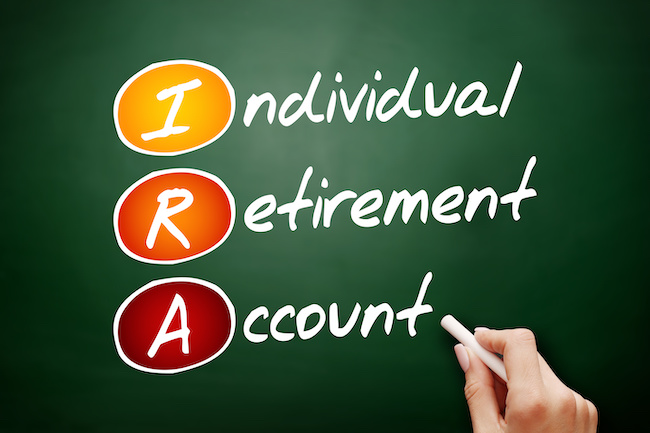House Bill Hints At Future of IRAs

Having listened to clients over the years express dismay regarding Required Minimum Distributions from retirement accounts, I recognize their concern. Generally speaking, the older the holder of an IRA or 401(k) becomes the more he or she needs to withdraw from the account on an annual basis and, therefore, the more taxes need to be paid. Traditional IRA’s give the tax break up front and then expect the holder to pay taxes on withdrawal. Roth’s work in reverse. There, you pay taxes up front but withdraw for the most part without paying taxes on the increase in value. However, Roth’s were a later development. Most of my clients have the majority of their retirement investments in the traditional products.
This is not the only issue. Contributions to traditional IRA’s end at age 70 ½, an age that used to be considered “elderly,” but no longer so. Many Americans continue to work after age 70 ½ and are limited to Roth contributions. All of this discussion, by the way, sidesteps discussion regarding employees who contribute through their employer’s retirement plans.
Having said this it could be noted that a Bill that recently passed the U.S. House of Representatives with overwhelming support from both Democrats and Republicans could indicate where the government is going with this and with other retirement issues for seniors. Like many bills introduced in the House these days it is awaiting confirmation in the Senate which is in process of developing its own version but, in some form, it has a decent chance of passing. To my mind one of the most significant aspects of the Setting Every Community Up for Retirement Enhancement Act (SECURE Act) is the direction it takes in dealing with retirement savings and whether that direction will continue. Here are some of those aspects. Note that SECURE is no panacea for retirement savings problems but a step in a direction.
SECURE would allow contributions to traditional IRA’s after age 70 ½. If you want to keep saving in your traditional IRA you could continue to do so after age 70 ½. If you are already an automatic saver and continue to work and want to contribute you could do so.
The SECURE Act would move the dial from 70 ½ to age 72 for required minimum distributions. The change in age for required minimum distributions is modest but reflects a direction.
Employers would be given protection against legal action in the event retirement funds are invested through annuities in 401(k) plans. This is a controversial aspect of the Bill. One inhibiting factor for employers investing in annuities is fear of legal liability if they fail. On the other hand the question is unanswered what happens if the insurance company does fail. What happens to the plan?
The Act encourages Multi-Employer Plans. The idea is that many small employers are intimidated currently from offering their own 401(k) plans. The Act would encourage and somewhat simplify the process of establishing multi-employer plans.
Where the money comes from – impact on “stretch IRAs”. Another aspect of the Act would be to limit what have come to be referred to as “stretch IRA’s.” Currently, where funds remain in IRA’s on death of the original owner, beneficiaries have been able to “stretch” their required minimum distributions essentially through their own lives thereby delaying repayment of taxes to the government. This would be limited both as to what beneficiaries could do this and what length of time it could be “stretched.”
What the Act does not address. Ultimately the SECURE Act (the Senate version is referred to as RESA) nibbles around the edges of some major problems with the retirement system in America. One analysis in Forbes states this aspect this way: “The major issues facing retirement security for most Americans still come from Social Security funding issues, rising health care costs through skyrocketing drug costs, strains on Medicare and Medicaid, and – with roughly one-third of the American population not really saving for retirement – small modifications to savings plans likely won’t help this group.” “8 Major Ways The SECURE Act Could Impact Your Retirement Plan,” Jamie Hopkins, Contributor, May 24, 2019.
Despite all this it is a step in a direction and a discussion much needed.
About the Author Janet Colliton
Esquire, Colliton Law Associates, P.C. Janet Colliton has practiced law for over 38 years, 37 of them in Chester County, Pennsylvania, a suburb of Philadelphia. Her practice, Colliton Law Associates, PC, is limited to elder law, Medicaid, including advice, applications and appeals, and other benefits planning including Veterans benefits, life care and special needs planning, guardianships, retirement, and estate planning and administration.
